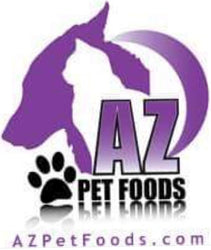
Extra Dog Food: The Importance of Proper Nutrition and Responsible Feeding
As devoted pet owners, we all want the best for our furry companions. Providing them with love, care, and attention is essential, but one aspect that often gets overlooked is their diet. Just like humans, dogs require a balanced and nutritious diet to lead healthy and fulfilling lives. While many dog owners might be tempted to indulge their canine friends with extra food as a sign of affection, it is crucial to understand the importance of proper nutrition and responsible feeding to avoid potential health issues. In this blog, we will delve into the significance of extra dog food, explore the potential consequences of overfeeding, and provide guidelines for ensuring your dog receives the right amount of nutrition.
- The Allure of Extra Food
Our dogs have an innate ability to wrap us around their paws with those endearing eyes and wagging tails. Often, pet owners find it difficult to resist the temptation of providing extra food as a way to express love and affection. While an occasional treat is not harmful, excessive indulgence can lead to adverse effects on your dog's health.
- Understanding Your Dog's Nutritional Needs
Dogs, like humans, require a balanced diet consisting of proteins, carbohydrates, fats, vitamins, and minerals. Different breeds and sizes have varying nutritional requirements, and factors such as age, activity level, and health conditions should also be considered. Providing your dog with the right mix of nutrients is essential for their overall well-being.
III. The Dangers of Overfeeding
- Obesity: One of the most significant risks of overfeeding is obesity, which can lead to a range of health issues such as joint problems, heart disease, and diabetes. According to the Association for Pet Obesity Prevention, an estimated 56% of dogs in the United States are overweight.
- Digestive Problems: Overeating can strain your dog's digestive system, leading to issues like bloating, vomiting, and diarrhoea. These conditions can cause discomfort and distress to your pet.
- Nutritional Imbalance: Extra dog food might not necessarily mean a well-balanced diet. Overfeeding with treats or table scraps can lead to nutritional imbalances, resulting in deficiencies or excesses of certain nutrients.
- Behavioral Issues: Too many treats or extra food can disrupt your dog's training and behavior. It might encourage begging, stealing food, or even aggression towards others when guarding their meals.
- Signs Your Dog Is Overfed
Recognizing the signs of overfeeding is crucial in ensuring your dog's health and well-being. Look out for the following indicators:
- Weight gain: If you notice your dog gaining weight rapidly, it might be a sign that they are consuming too many calories.
- Begging behavior: Constant begging for food, even after regular meals, could indicate overfeeding or feeding too many treats.
- Low energy levels: An overfed dog might become lethargic and less active than usual.
- Frequent vomiting or diarrhoea: Digestive disturbances are common consequences of overeating.
- Responsible Feeding Practices
- Consult Your Veterinarian: Before making any changes to your dog's diet, consult your veterinarian to determine their specific nutritional needs based on factors like age, weight, and health condition.
- Portion Control: Follow the feeding guidelines provided on your dog's food packaging. Measure the portions to avoid overfeeding.
- Treats in Moderation: Treats are excellent for training and rewarding good behavior, but use them in moderation. opt for healthy, low-calorie treats.
- Avoid Table Scraps: Human food may not be suitable for dogs and can lead to digestive issues. Avoid giving table scraps, especially those containing harmful ingredients like chocolate, onions, or garlic.
